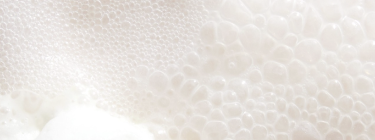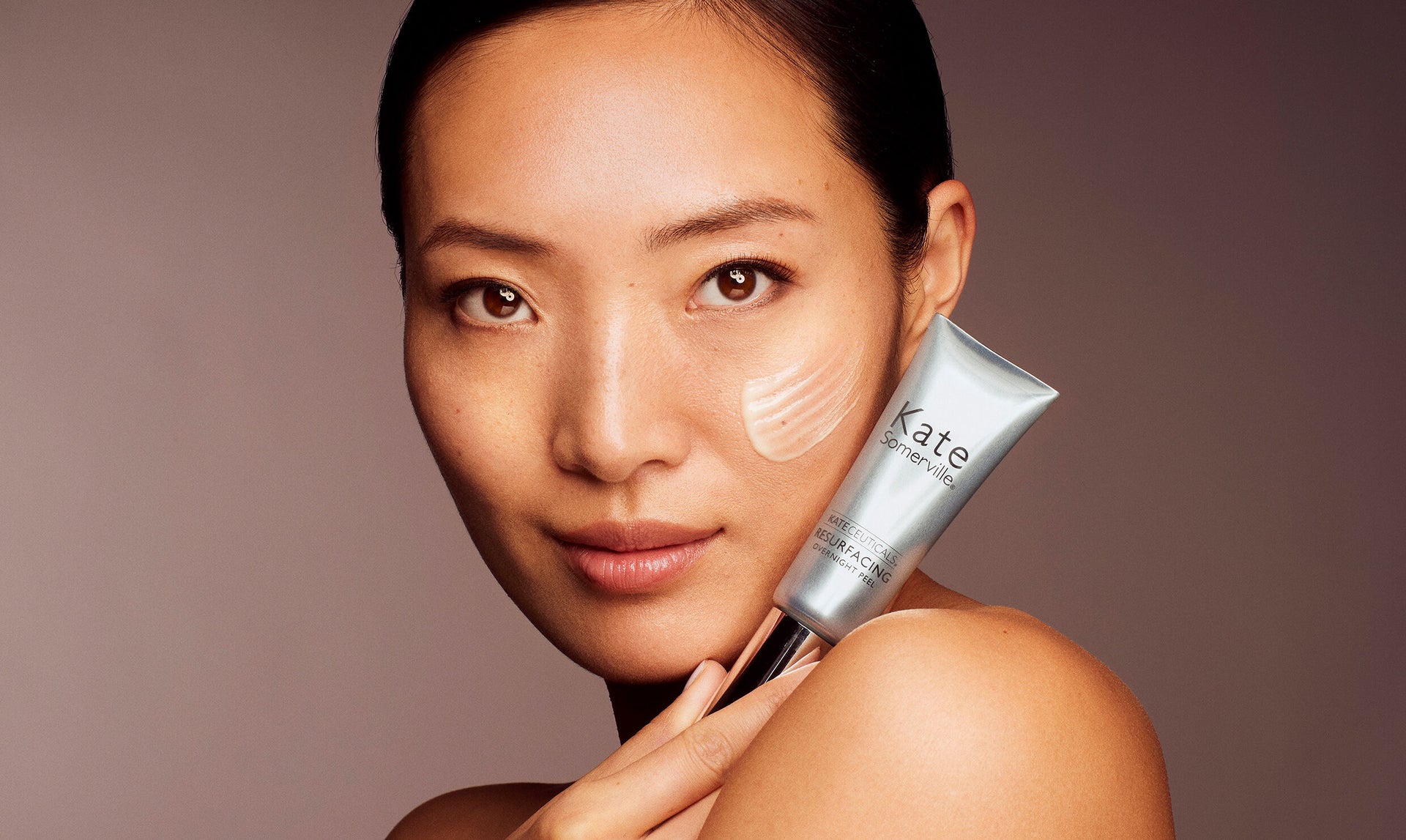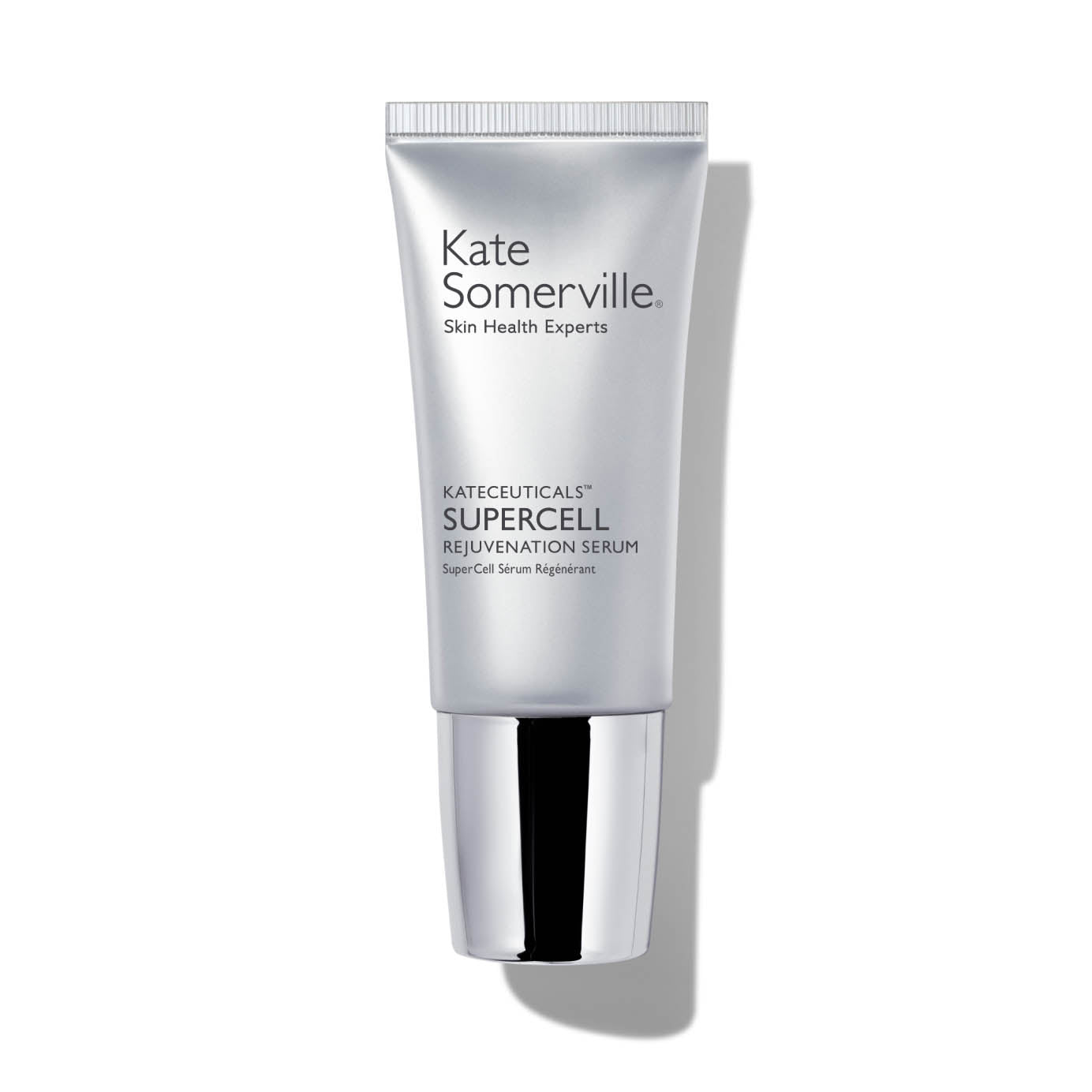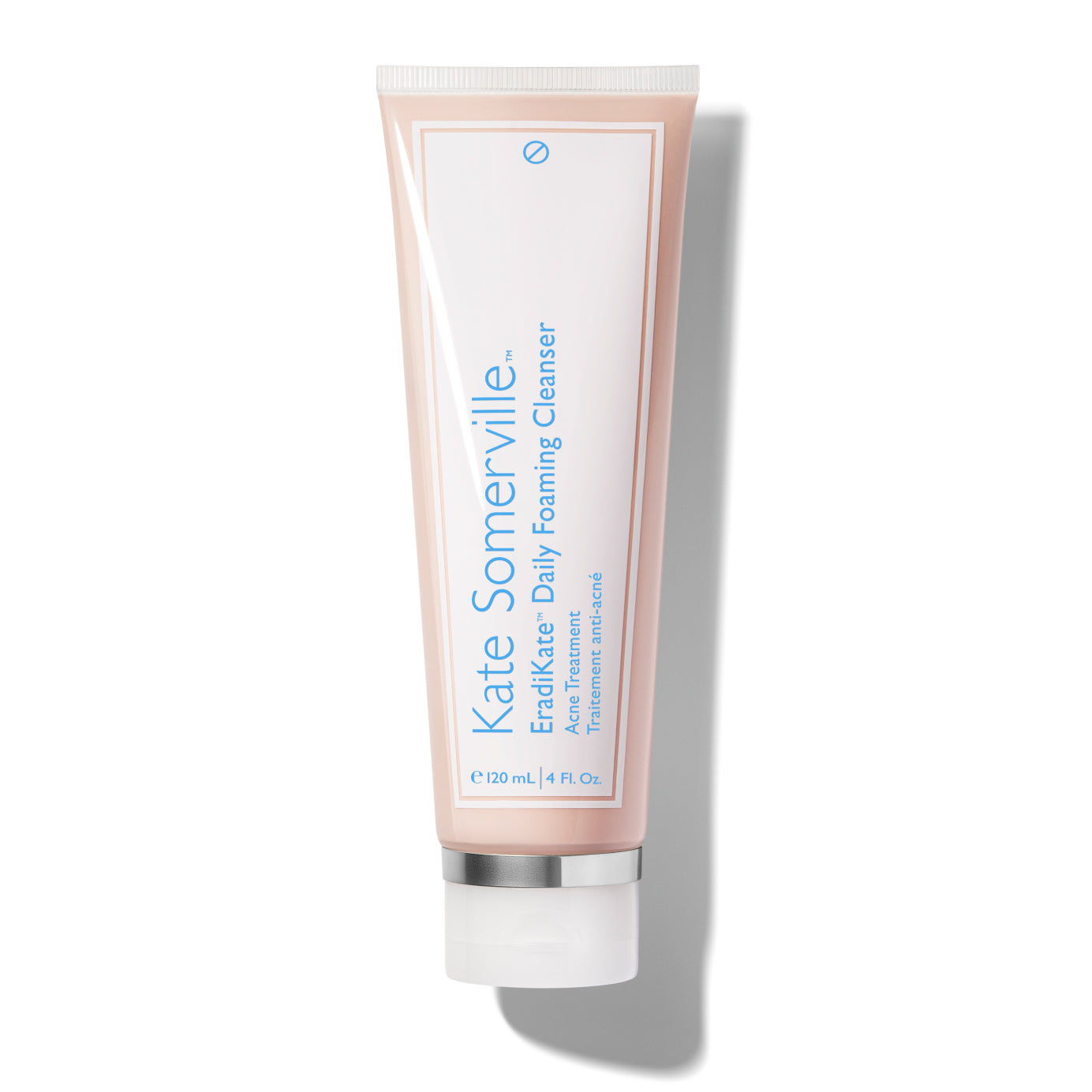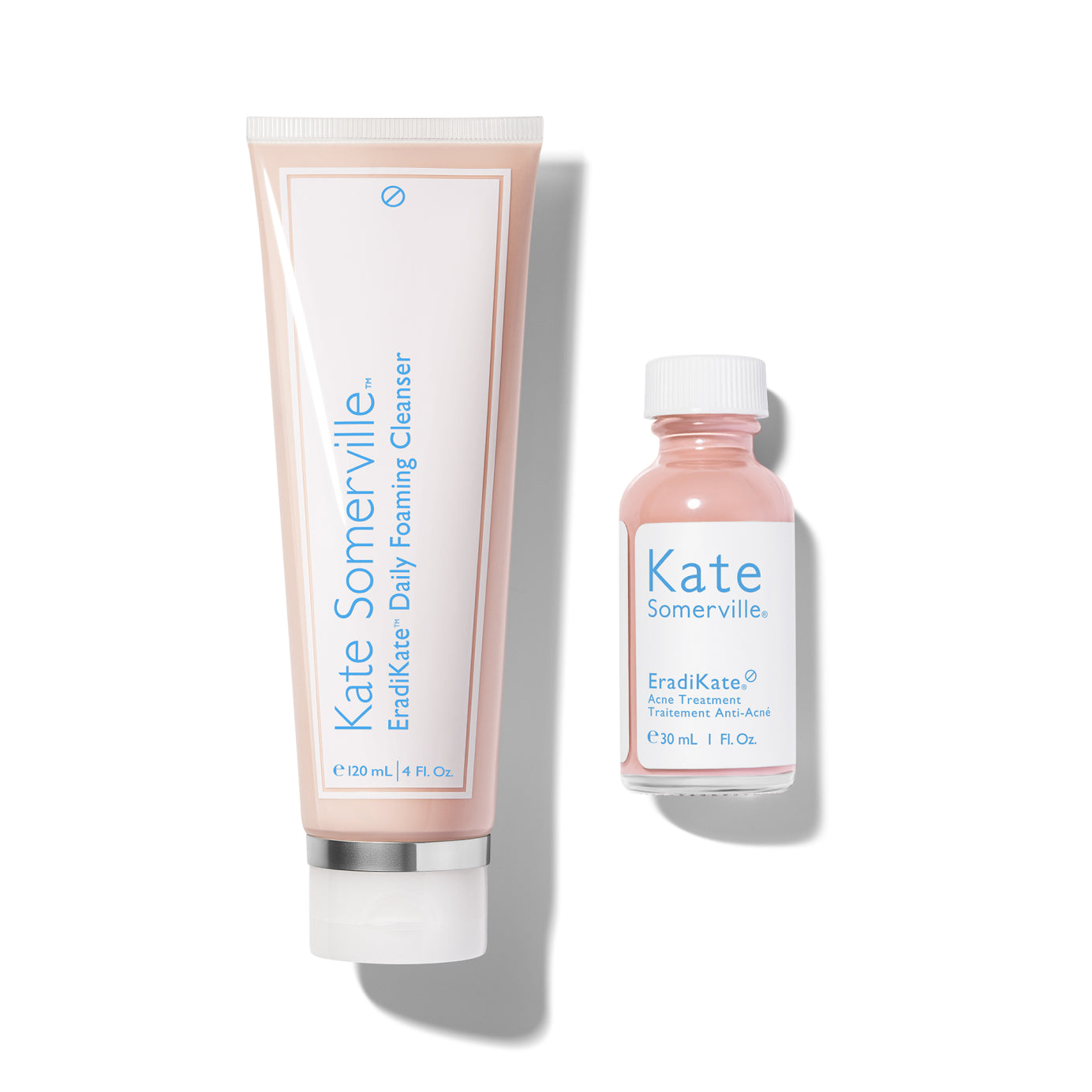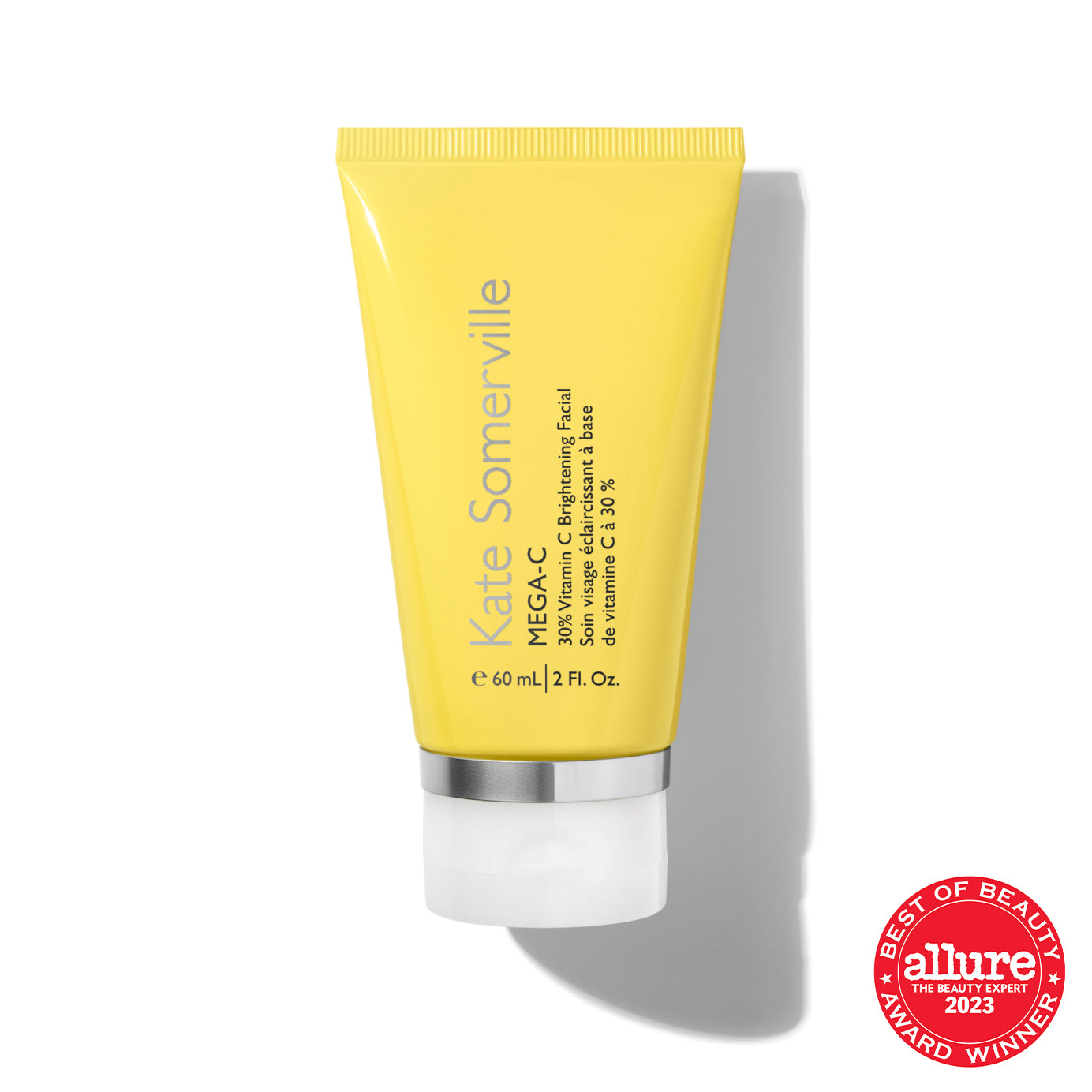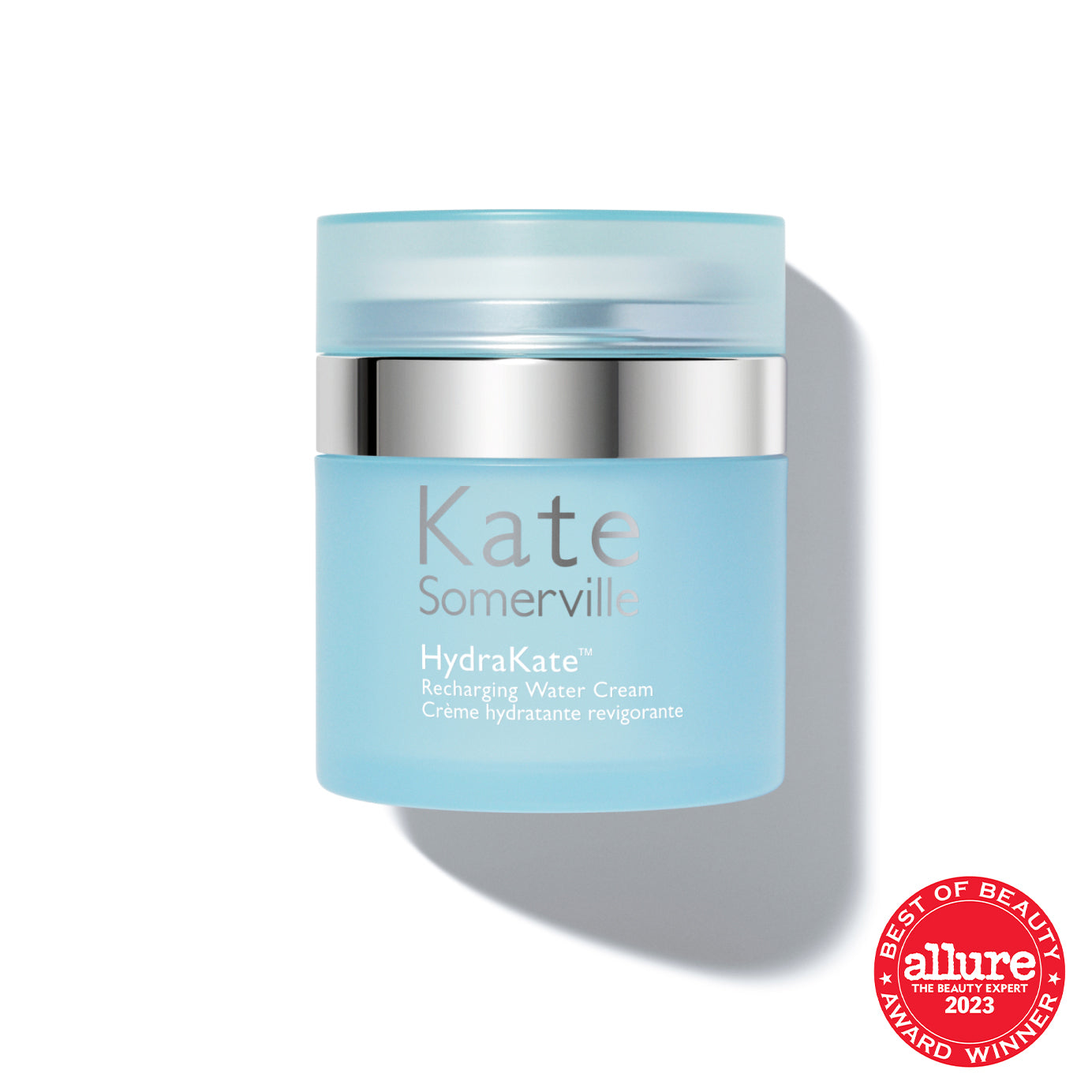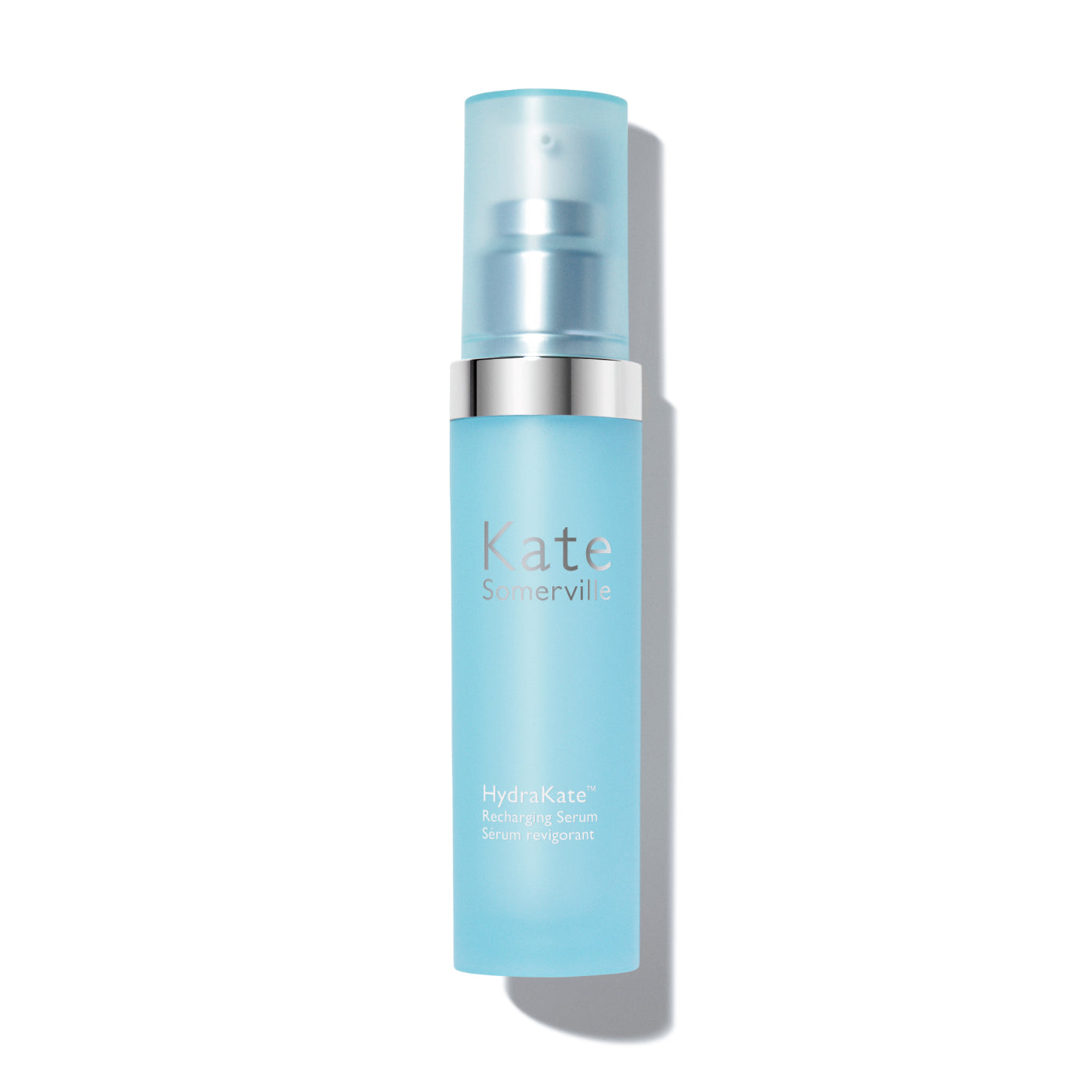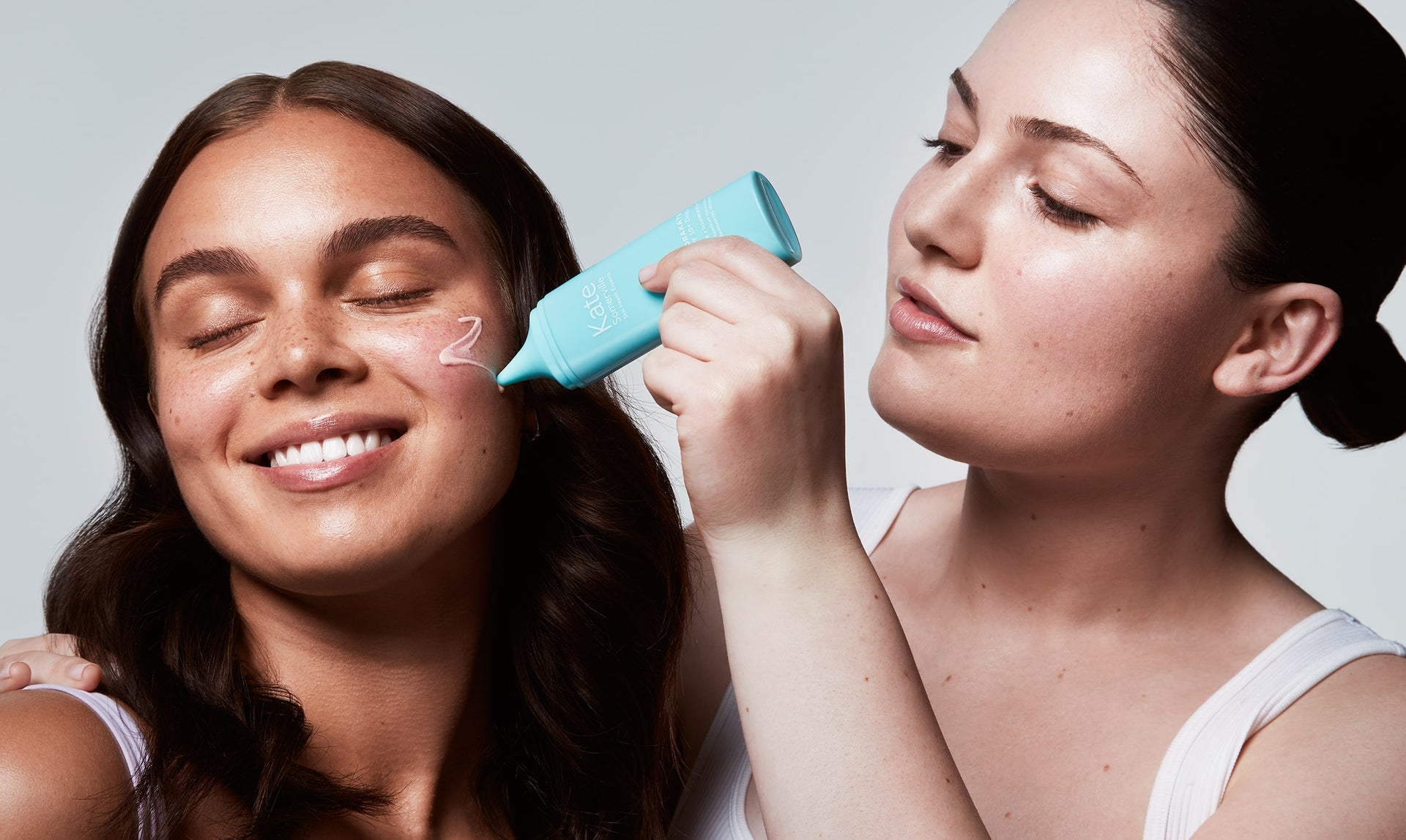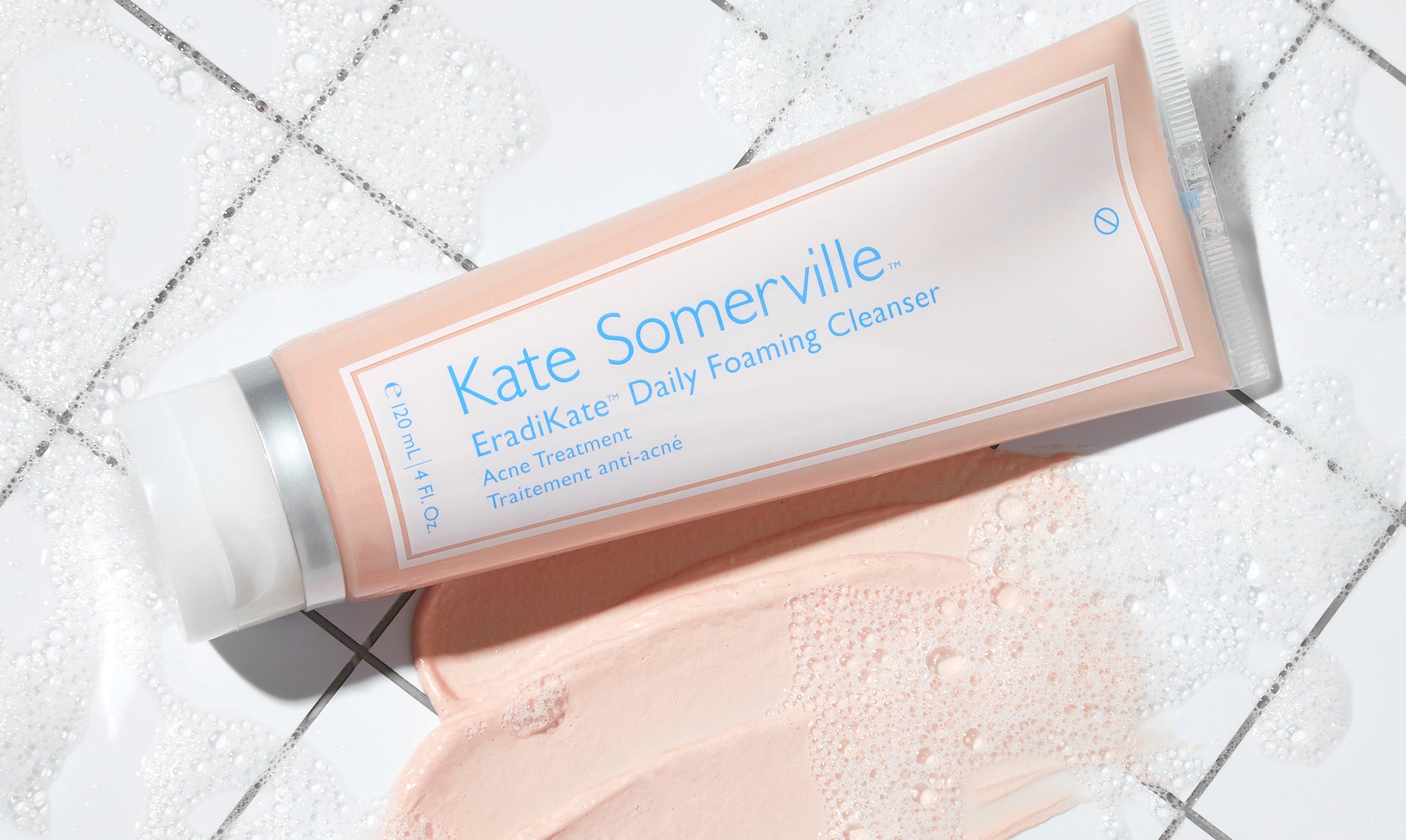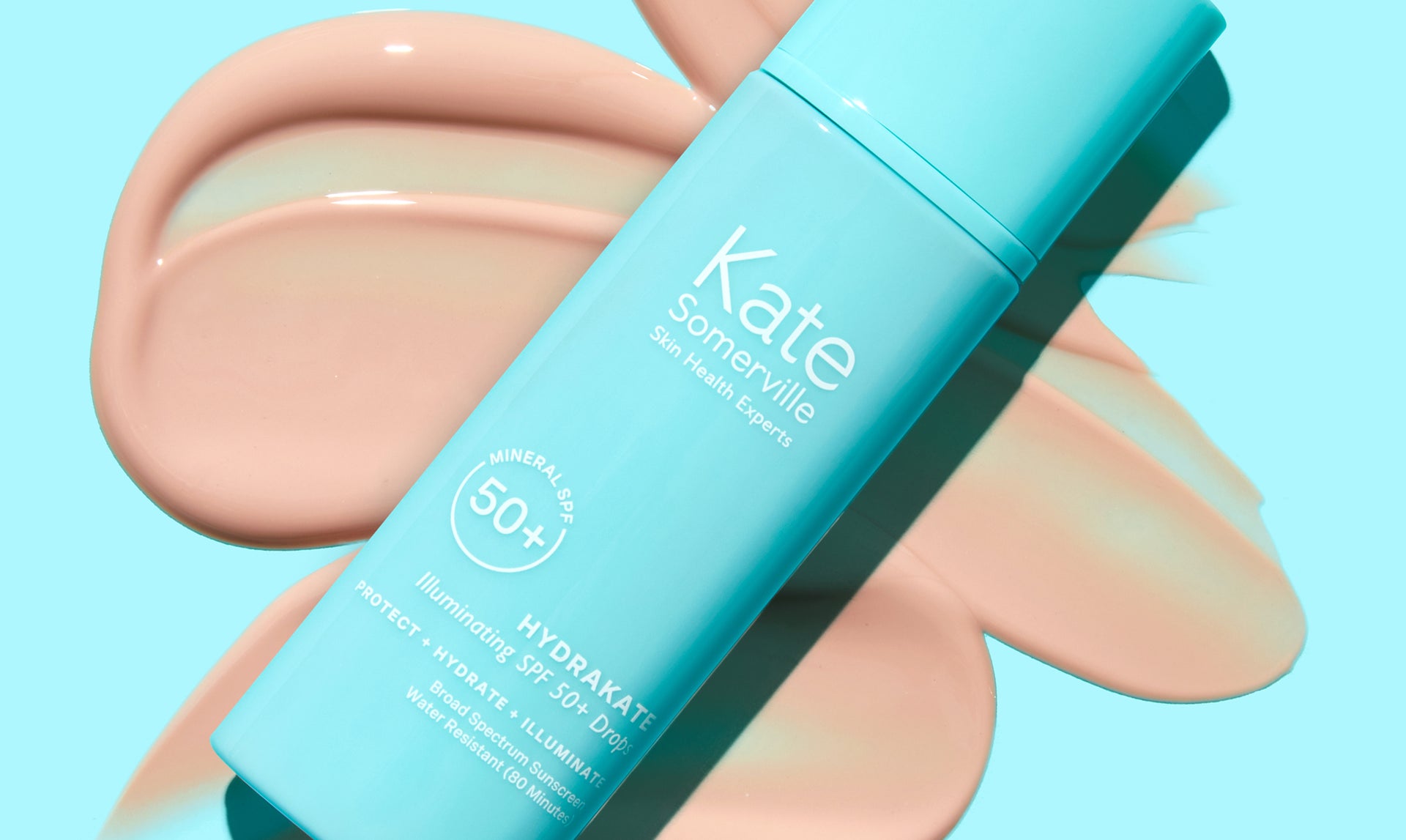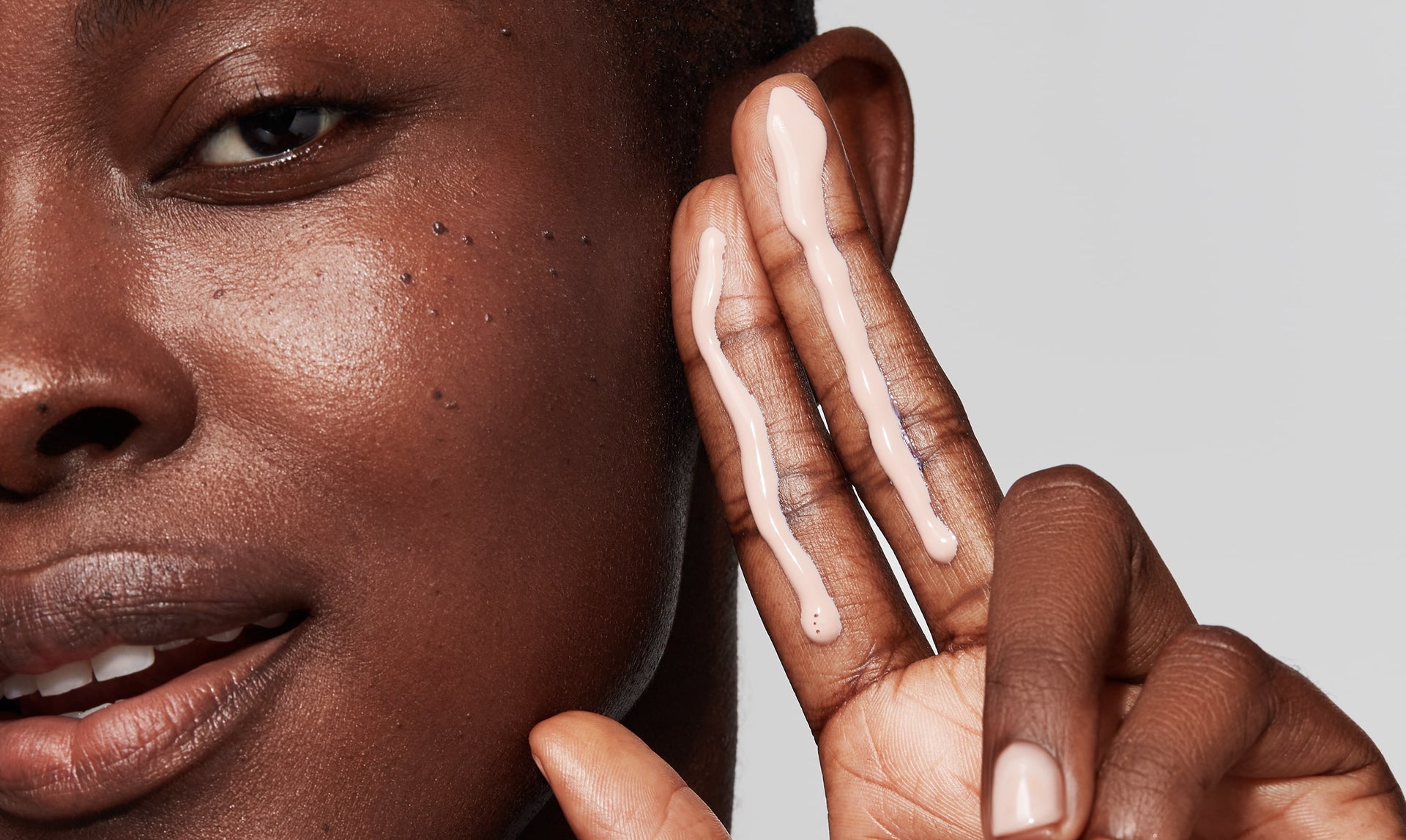If you’re like us, you’re always looking for ways to improve your skin. Eating a healthy diet, reducing stress, and using the best skincare products and ingredients for your skin type and skin concerns are all important factors in your quest for clear and radiant skin.
If you have oily-prone or acne-prone skin, a critical tool in your approach to fighting blemished, blotchy, or acne-prone skin is the right intake of certain vitamins, including vitamin B3, a.k.a niacinamide.
Vitamin B3, also known as niacinamide, helps your body convert the foods you eat into energy by helping the body absorb their fats and proteins (1). In turn, this helps keep your skin and hair healthy. There’s also evidence that niacinamide may help reduce the appearance of acne blemishes.
Wondering how it all works? Our Skin Health Experts reveal the incredible benefits of this powerful vitamin.
What is Niacinamide?
Niacinamide is a water-soluble form of vitamin B3. This means that your body doesn’t store any excess. Instead, it must come from the foods you eat. You can meet your body’s needs for niacinamide by consuming (2):
- Beets
- Fish
- Eggs
- Nuts and seeds
- Beans
- Green veggies
- Fortified breads and cereals
- Eggs
In addition to adding these delicious, vitamin B3-packed foods to your diet, you can also apply products containing niacinamide topically.
While topical applications won’t provide the same body-boosting benefits that you’ll get from ingesting niacinamide, they may help improve your skin’s health.
How Does Niacinamide Benefit Your Skin?
Skincare products containing niacinamide have exploded in popularity in recent years. And it’s no surprise when you consider the potential benefits niacinamide can provide for your skin, such as (3):
- Treatment of hyperpigmentation – Niacinamide helps block the enzyme responsible for producing pigmentation, or melanin, and improve skin tone.2.1
- Retention of moisture – The topical application of niacinamide stabilizes your natural skin barrier function which helps reduce the amount of water it loses. This balances the moisture levels in your skin, giving it a soft, smooth appearance.
- Prevent the signs of aging skin – By boosting moisture retention and stimulating cellular repair, niacinamide can prevent or mitigate the appearance of fine lines and wrinkles.
- Reduction of inflammation – Niacinamide helps soothe inflammation which might lessen the appearance of redness caused by some skin conditions.
- Regulation of oil production – Niacinamide regulates the amount of oil produced by your skin by balancing your skin’s moisture content. This helps prevent the type of overproduction of oil that can lead to acne breakouts.
When it comes to breakouts and acne, it’s important to be discerning about the products and ingredients you include in your skin-clearing routine. You’ve probably heard of different ingredients for acne from salicylic acid to benzoyl peroxide. But you might be wondering, “is benzoyl peroxide good for acne?” or “can salicylic acid treat acne?” Just like you’re probably wondering how niacinamide can help with acne and clearing skin.
How Can You Use Niacinamide for Acne-Prone Skin?
With all the other benefits it’s bringing to the table, you’re probably wondering: does niacinamide help with acne? When you consider niacinamide’s ability to regulate oil production and minimize irritation, you get a sense of its skin-clearing benefits.
Niacinamide helps regulate the skin’s production of sebum, a type of oil produced by the sebaceous glands in the skin. Overproduction of sebum is linked to moderate to severe acne breakouts (4). Adding topical niacinamide to your daily skincare routine might be the missing piece to your good skin puzzle.
How Much Niacinamide Do You Need If You Have Acne?
Among skincare experts, there isn’t a consensus on the exact amount of niacinamide recommended for reducing oil production and redness associated with acne-prone skin. However, studies that support the effectiveness of niacinamide to treat other skin problems utilized topical solutions with a 2% to 5% concentration (5).
Are There Any Side Effects Associated with Niacinamide?
The side effects associated with niacinamide are typically mild. Some of the most commonly reported ones include (6):
- Slight itching of the skin
- Appearance of redness
- Overall skin irritation
- Mild burning sensation
Many of these irritants go away with time as your skin adjusts to the ingredient. However, it’s recommended that you speak with your dermatologist or doctor if the symptoms persist—they may recommend that you reduce the amount of product you’re using or try a different approach to keeping skin blemish-free.
Uncover Your Best Skin with the Skin Health Experts at Kate Somerville
Niacinamide is a must-have for healthy skin. In addition to adding it to your daily diet, you can also incorporate niacinamide into your skin care routine. Unsure where to start? Try the Kateceuticals™ Resurfacing Overnight Peel. Along with retinol, glycolic acid, and vitamin E, this niacinamide-formulated at-home peel can deliver clinic-level luminosity and smoothness after just one use.
Wondering what other ingredients are helpful for acne-prone skin? At Kate Somerville, we’ve seen tremendous results both in the clinic and at home when clients/customers regularly use Retinol. You may be thinking, Is Retinol good for acne-prone skin? When used in expertly formulated concentrations, it can has been proven to be an effective acne fighter as well as useful for clear skin maintenance.
If you're also looking to incorporate other ingredients into your skincare routine, visit us at Kate Somerville to learn more. It's also important to understand the skin type you uniquely have because what works on an oily skin type might not work for a dry skin type or a sensitive skin type.
At Kate Somerville, we’re passionate about improving your skin's health by providing quality skincare products and expert advice. Schedule a consultation today if you want to learn more about niacinamide and how it can fit into your skincare routine.
1. National Institutes of Health. Niacin. https://ods.od.nih.gov/factsheets/Niacin-Consumer/
2. Mount Sinai. Vitamin B3. https://www.mountsinai.org/health-library/supplement/vitamin-b3-niacin
2.1 https://www.riverchasedermatology.com/blog/sensitive-skin-use-niacinamide-to-fade-dark-spots-reduce-irritation-and-boost-hydration/
3. National Library of Medicine. Nicotinic Acid/Niacinamide and the Skin. https://pubmed.ncbi.nlm.nih.gov/17147561/
4. National Library of Medicine. Treatment Modalities for Acne. https://pubmed.ncbi.nlm.nih.gov/27529209/
5. The Journal of Clinical and Aesthetic Dermatology. How Much Do We Really Know About Our Favorite Cosmeceutical Ingredients? https://www.ncbi.nlm.nih.gov/pmc/articles/PMC2921764/
6. National Library of Medicine. A Review of Nicotinamide; Treatment of Skin Diseases and Potential Side Effects. https://pubmed.ncbi.nlm.nih.gov/25399625/
Sources:
Riverchase Dermatology
https://www.riverchasedermatology.com/blog/sensitive-skin-use-niacinamide-to-fade-dark-spots-reduce-irritation-and-boost-hydration/
National Institutes of Health. Niacin. https://ods.od.nih.gov/factsheets/Niacin-Consumer/
Mount Sinai. Vitamin B3. https://www.mountsinai.org/health-library/supplement/vitamin-b3-niacin
National Library of Medicine. Nicotinic Acid/Niacinamide and the Skin. https://pubmed.ncbi.nlm.nih.gov/17147561/
National Library of Medicine. Treatment Modalities for Acne. https://pubmed.ncbi.nlm.nih.gov/27529209/
Dermatologic Therapy. The Role of Nicotinamide in Acne Treatment. https://pubmed.ncbi.nlm.nih.gov/28220628/
The Journal of Clinical and Aesthetic Dermatology. How Much Do We Really Know About Our Favorite Cosmeceutical Ingredients? https://www.ncbi.nlm.nih.gov/pmc/articles/PMC2921764/
National Library of Medicine. A Review of Nicotinamide; Treatment of Skin Diseases and Potential Side Effects. https://pubmed.ncbi.nlm.nih.gov/25399625/
